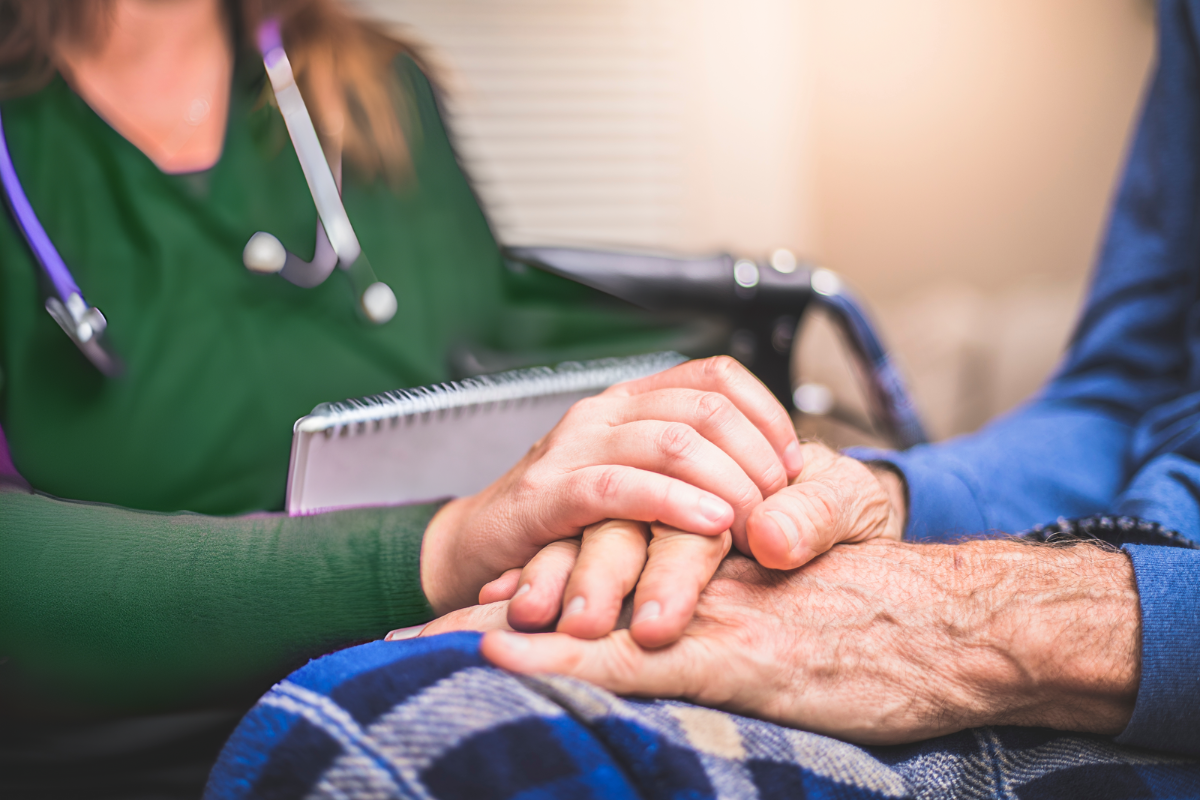Safely Visiting Elderly Parents in Long-Term Care
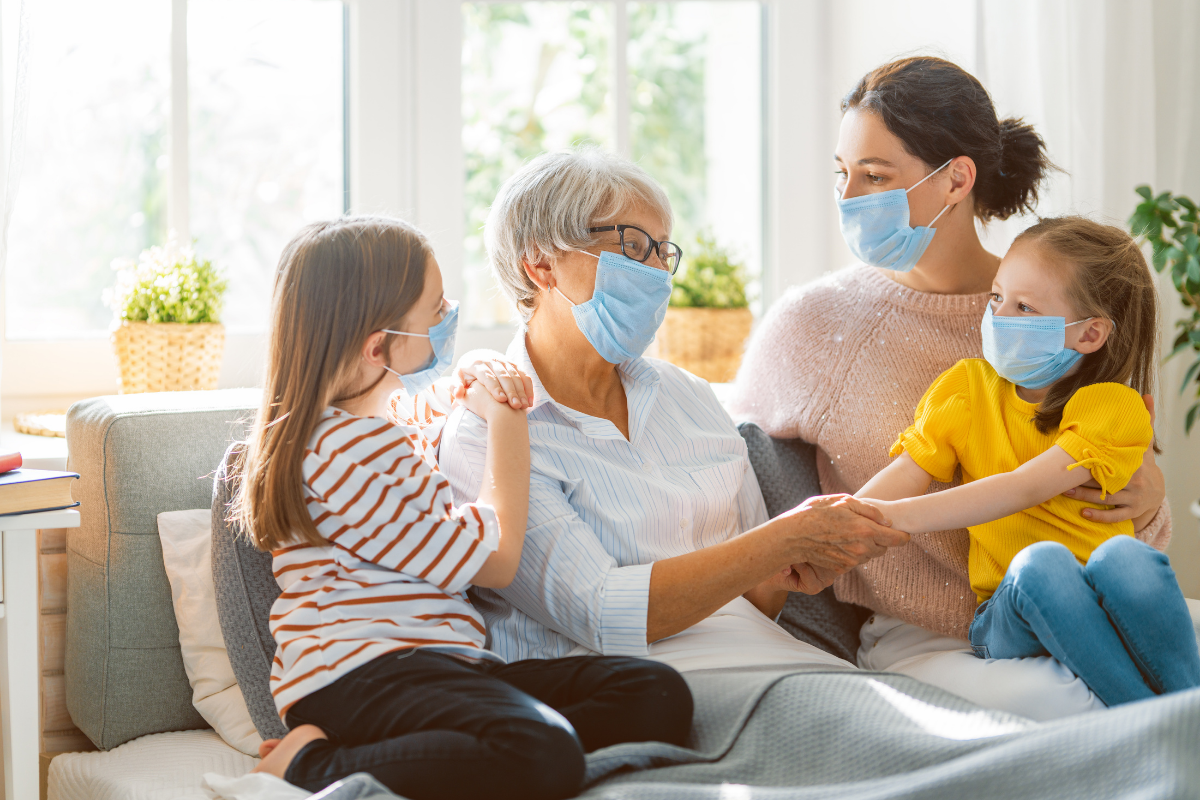
As the COVID-19 pandemic stretches into yet another holiday season, nursing homes and long-term care facilities are having to manage new challenges that come with opening their doors to visitors. Issues like breakthrough exposures and infections, unvaccinated employees, and staff shortages are making it difficult to return to business as usual.
So, if your holiday plans include visiting elderly parents or grandparents who live in a long-term residence, there are a few things you can do to help keep everyone safe this holiday season.
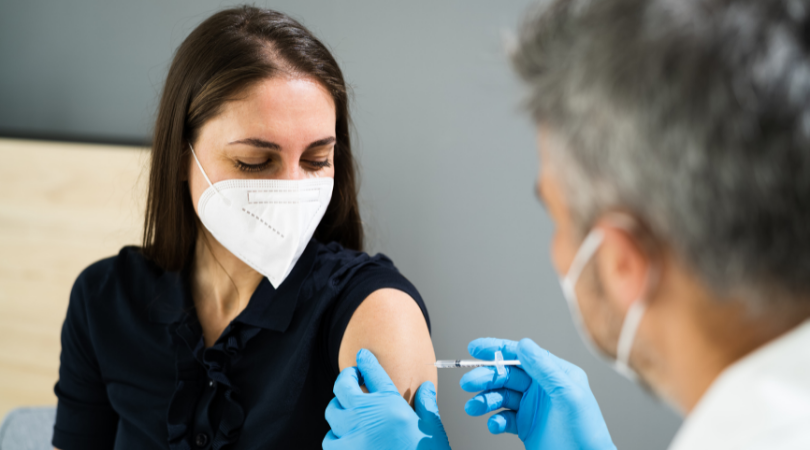
1. Get vaccinated.
Since the onset of the pandemic, we here at Crossroads Hospice & Palliative Care have listened to and followed the guidance recommended by the Centers for Disease Control and Prevention (CDC). In the beginning of the pandemic, the CDC offered simple guidance to keep everyone safe, including social distancing, hand washing, and mask wearing.
Over the last year that guidance has evolved. Today, the CDC recommends that everyone over the age of 5 receive the COVID-19 vaccine. All three of the available vaccines (Pfizer, Moderna, and Johnson & Johnson) are safe and effective and have been endorsed by the CDC. For more information on what vaccine is right for you, visit their website. When you’re ready to get vaccinated, vaccines.gov can help you set up your appointment and learn more about what options are available near you.
It’s important to keep in mind that because of their age, older folks and their friends who live in long-term residences are at a much higher risk for contracting COVID-19. Being fully vaccinated is the best gift you can give to your loved one, like grandma and the nurses and aides who keep her healthy throughout the year.
It is also important to note that the CDC has recently expanded eligibility for COVID-19 booster shots. So once six months has passed since your second dose of the Pfizer-BioNTech or Moderna vaccine, consider scheduling a follow up.
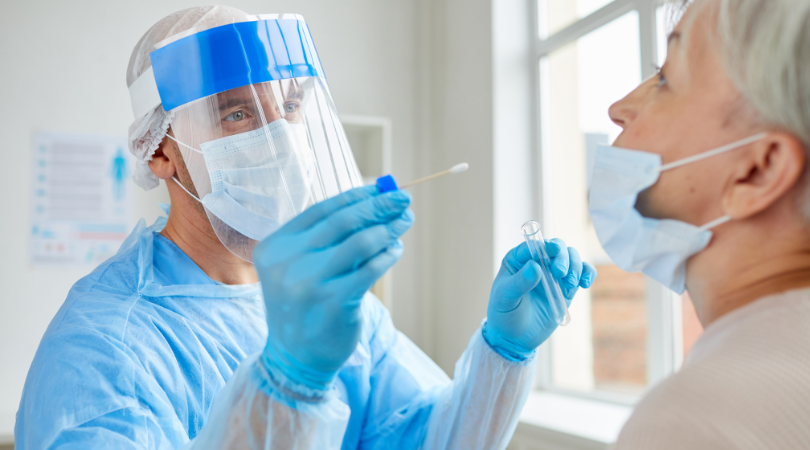
2. Know your status.
Even with the vaccine, there is the possibility that you could become asymptomatic if you are exposed to the virus. This means you have COVID-19, but don’t show any symptoms. So, before heading out to see your loved one, make an appointment to get tested and to know your status.
It’s simple and easy to find an appointment, and test results can come as quickly as 24 hours. Most major cities have testing sites open for walk-in or same-day appointments. These tests are usually offered free of charge or at a very low cost. Visit this site to search for locations where testing is available near you.
Another alternative testing method is rapid, at-home testing kits, which can provide results in about 15 minutes. These testing kits are not as reliable as lab-based tests, but the United States Food and Drug Administration (FDA) has given emergency-use authorization to use them. Plus, these tests can provide some extra peace of mind if you’re looking for something quick and easy to do while traveling.
Once you plan your visit to see your loved one, make sure to pack your vaccination card (or a photo version) or proof of a negative test in case the facility requires one to enter.
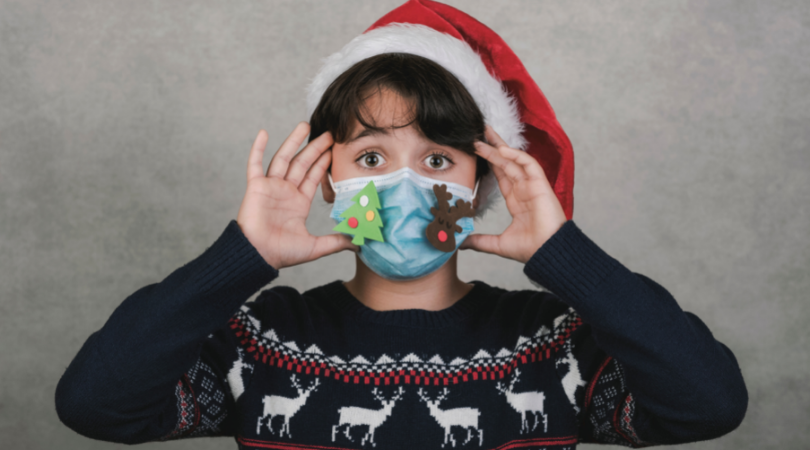
3. Mask up.
The simplest way to stay safe and reduce harm is to wear a mask, whether you are indoors or outdoors and around people you don’t know. Mask wearing will reduce your chances of coming into contact with COVID-19 or spreading it to others, if you’ve unknowingly come into contact with it. For a handy guide on the dos and don’ts of mask-wearing as well as what masks work best, check in with the CDC here.
To score bonus points with grandma, wear your favorite holiday-themed mask when you visit and bring an extra one for her. Not only will you two look like Santa's elves, but the masks will ensure you have more visits in your future to laugh and create memories.
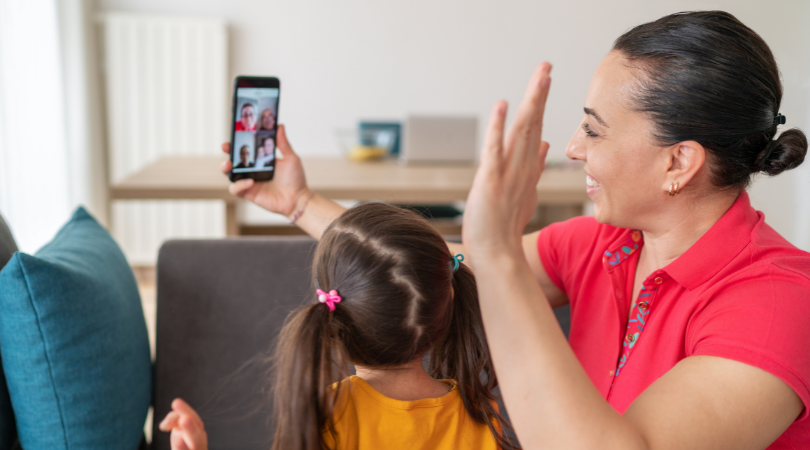
4. Keep your distance if need be, but stay connected.
If traveling to see your loved one poses too much of a risk, one option for staying connected is to use technology. With video calls or virtual hang outs, it’s easy to log on and see your loved one’s face. Zoom, Google Hangouts, and Facetime (for Apple phones and devices) are all options that are free and easy to use.
If your loved one needs help with what options are best for them, this recent post on how to deal with loneliness during the holidays using technology offers helpful tips and creative activities on how to log on and have fun. While talking and celebrating virtually may not feel the same as real life celebrations, it’s a way for you to remain connected without increasing the risk to your older loved one’s health.
No matter where the holidays take you and your family this year, check the CDC’s website for up-to-date guidance and tips for traveling, and always carry an extra bottle of hand sanitizer or hand wipes. Not only do they provide extra protection against germs, but they can make great stocking stuffers!
For information on how hospice care helps patients and their families during the holidays, give us a call at 1-888-564-3405.
If you found this information helpful, please share it with your network and community.
Copyright © 2021 Crossroads Hospice & Palliative Care. All rights reserved.


